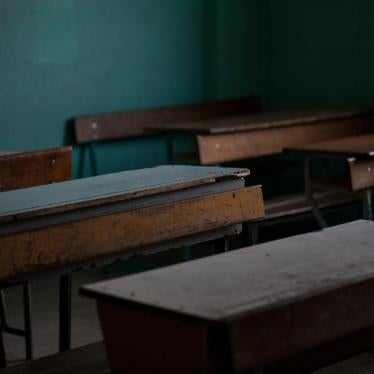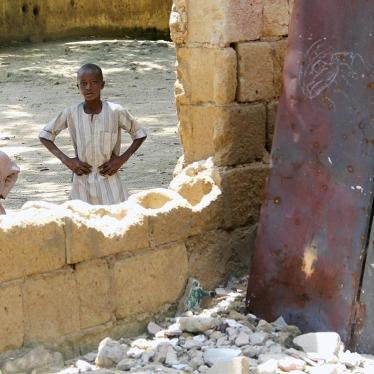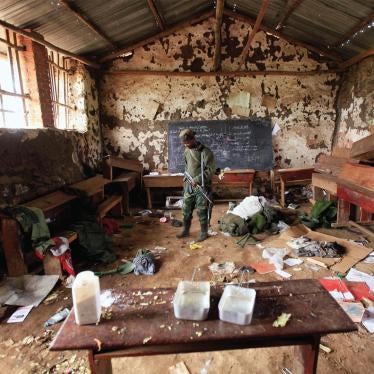Last December, the United Nations Children’s Fund, UNICEF, called 2014 one of the worst years on record for children. A new UN report issued today on children and armed conflict – how many were killed, abducted, or subject to other grave violations – bolsters that terrible finding.
In Afghanistan, child casualties increased last year by 48 percent to at least 2,500 children, the secretary-general’s annual report said. Iraq saw the deadliest year since the UN first started systematically documenting violations against children in 2008, with nearly 700 children killed and almost 1300 abducted – and these are only the recorded cases. The number of children killed in Palestine by Israeli forces jumped to 557, mostly during the fighting with Palestinian armed groups in Gaza – more than the number killed in the last two military operations there combined.
Children’s education also suffered, as armed forces or groups damaged or destroyed more than 1,000 schools around the globe during the year. The most affected schools were in Palestine, where Israeli airstrikes and shelling damaged or destroyed 543 schools in Gaza, and Nigeria, where the Islamist armed group Boko Haram carried out attacks on 338 schools, including the abduction of 276 girls from their school in Chibok, Borno, in April 2014. The result: hundreds of thousands of children are denied an education.
The report describes the use of children as suicide bombers in Afghanistan, Nigeria, Pakistan, and Syria; massacres of children with machetes in the Democratic Republic of Congo; sharp increases in child recruitment in South Sudan and Yemen; and hundreds of cases of sexual violence against children in Congo and Central African Republic. In a single horrific attack in December, members of the Taliban killed 132 children, some as young as eight, at a school in Peshawar, Pakistan.
These findings are even more alarming considering that they represent only the tip of the iceberg. Most of the report’s figures are significant underestimates, due to the lack of UN access and under-reporting. Some members of the UN Security Council – in particular Russia and China – insist that the report only include violations that the UN has “verified” because, they say, reports from nongovernmental organizations are unreliable.
In just one example of how this practice may skew the numbers, the report says that 358 children were killed in Syria in 2014, yet documentation by the Syrian Violations Documentation Center, a credible organization that tracks civilian casualties by name, puts the figure at 3,533 – 10 times higher.
Secretary-General Ban Ki-moon says that the report should “shock our collective conscience.” It should do more than that. It should drive us – especially the Security Council – to increase protections for children and hold perpetrators accountable. Thirty-eight countries took a modest step earlier this month when they joined the Safe Schools Declaration, pledging to protect schools from attack or from use for military operations. More countries should join that group. But there is no question that we are failing children.








